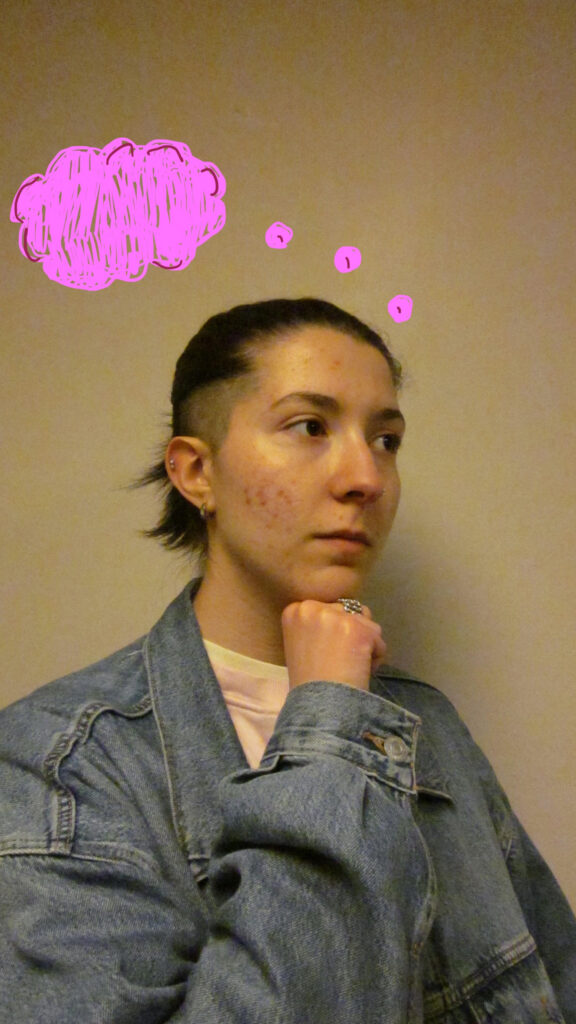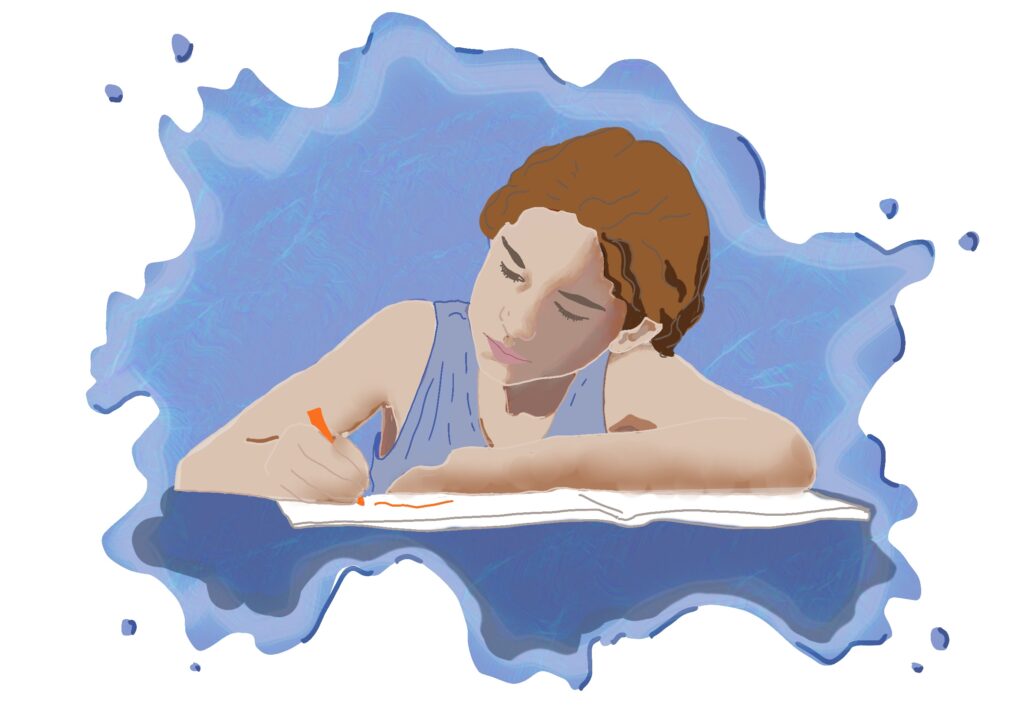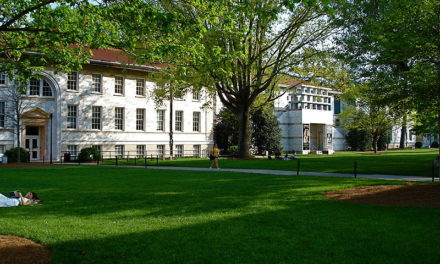
Courtesy of Opinion Staff/Headshot of Arts & Life Editor Alexandra Kauffman
I write like I breathe — out of necessity. I do not write because I think the world is better with my voice in it nor because I believe I am particularly talented. I do not write because I have something important to say. The urge to create, shape words like clay leaving behind the contour of my fingerprints, is an insatiable hunger. I have felt it gnawing at me since I was old enough to scribble letters with crayon.
As I grew older, I retired the crayons in favor of wide ruled paper, then college ruled paper and later a laptop. I realized writing could become a genuine fixture in my life as a career avenue through freelancing, editing or journalism. However, my high school friends wanted to be engineers, computer scientists and physicists. Some of them pursued visual art as a hobby, but none were writers.
I admired my friends for their intelligence and commitment to their own fields, though I felt creatively isolated. I was alone in my passion for words, and I longed for connection and community.
By the time college application season rolled around, I knew I would major in creative writing. Emory University became one of my top choices for its renowned creative writing department. When I received my acceptance email, the myriad of far-fetched fantasies, including a career in publishing, suddenly crystallized in front of my eyes; my dreams, with the aid of a few fortunate future internships and a hypothetically high GPA, could become a reality.
I took my first creative writing workshop in the spring of my freshman year. Workshops especially thrilled me, as I reveled both in receiving honest, detailed feedback and analyzing my peers’ work. The critiques I received humbled me, yet I appreciated them more than the praise. I didn’t feel insecure, but rather, I felt mostly eager to learn. I was overjoyed to be in a community of like-minded creatives where we improved our own work while uplifting each other.
During my intermediate fiction workshop last fall, the looming contour of insecurity cast my enthusiasm in shadow. My intermediate class was smaller and almost exclusively had creative writing majors, unlike my introductory course. I still enjoyed participating in workshops, but I felt less confident in my ability to share work as high-quality as that of my peers. I learned so much from them, but I could not be sure if they were learning from me. My joy soured, degenerating into envy and competitiveness.
On top of my self-doubt over the quality of my writing, I began to consider genre. Many of my peers wrote beautiful, heart-rending character dramas — grounded and self-serious stories of fiction. I prefer absurdist science fiction, complete with robots, lasers, spaceships and robots with lasers on spaceships.
Moreover, my peers often described their writing processes as something akin to an ecstatic frenzy of inspiration as they poured their emotions, hearts and souls onto the page in a moment of divine inspiration. Certainly, I have felt emotionally moved while writing before, but I have never entered a creative fugue state. All my ideas are tightly filtered through a strict process of outlining and editing. When I write, I feel like an artificer or an engineer working with the nuts and bolts of a machine.
I doubted the quality of my work, its style and my creative process. I was neurotically outlining schlocky sci-fi with plot points written on note cards while my peers were churning out image-rich, deeply personal stories that accessed emotional realities through ambiance or surrealism. I began to experience a dizzying dissonance between my joy and my insecurity. I learned so much from my brilliant peers, yet I felt I was in competition with them. I celebrated my peers’ writing accomplishments, yet I bitterly envied them. The creative community I longed for had brought me so much fulfillment, yet I struggled with creativity-hindering doubts.
In “Song of Myself,” poet Walt Whitman wrote, “Do I contradict myself? / Very well then I contradict myself, / (I am large, I contain multitudes).”
I still struggle with these opposing impulses. I’ve found it difficult to create when I’m mostly preoccupied with doubt over the quality and content of my writing. However, I have come to accept that this emotional dichotomy is inherent to existing as an artist not in isolation but in a network of diverse, talented minds.
I often remind myself that the ability to frequently talk and work with so many writers is a unique gift of my college experience. Though I still yearn for a career in the publishing industry, I don’t anticipate it will satiate my artistic hunger — that void is exclusively filled by writing. Ultimately, these four years at college may be the only time I am able to focus near-solely on my craft alongside other dedicated writers.
I accept that I contradict myself. I accept the inevitable insecurity, envy, joy, self-doubt and fulfillment that arise from existing in creative spaces. I accept that I write about lasers and robots when most of my peers do not, and I accept that we may never fully resonate with each other’s creative visions but are still emotionally invested in each others’ successes. I accept that I write like I breathe, and I will always find a way to write.

Jessie Satovsky/Staff Illustrator
Alexandra Kauffman (26C) is from Phoenix, Ariz.
Alexandra Kauffman (26C) is an English & Creative Writing major from Phoenix, Arizona. At the Wheel, she is an Emory Life section editor and Arts & Entertainment campus desk. Outside of the wheel, she is a member of Alloy Literary Magazine. She is also a science fiction enthusiast and enjoyer of the bizarre.




